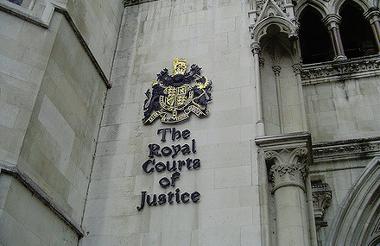Earlier this month, the Court of Appeal reversed an Employment Tribunal judgment which could have cost the social care sector £400m in back pay to staff.
The ruling in favour of Mencap relates to employees who work “sleep-in shifts”, where they sleep in a patient's house or at a care home overnight but are on call to provide support if necessary.
Two previous tribunal rulings, in favour of a sleep-in shift worker, Clare Tomlinson-Blake, found Mencap should have paid her the full minimum wage during sleep-in shifts.
However, the Court of Appeal ruled that it was legal for Mencap to pay Tomlinson-Blake a flat-rate fee for each shift of £29.05, as is common practice in the social care sector.
Unresolved issues
On the surface, this is a massive win for the social care sector, with many organisations reporting they would face bankruptcy if forced to back-pay all workers the full minimum wage.
But the ruling does not solve the two huge issues created by the original employment tribunal rulings against Mencap in 2016 and 2017 and the government’s subsequent response.
The first issue was that social care providers could be required to pay higher wages to sleep-in shift staff going forward, which many deem unaffordable without additional government funding via local authorities. This has been estimated to cost the sector an extra £200m each year.
Following the initial employment tribunal ruling against Mencap, the Department for Business, Energy & Industrial Strategy published guidance using a care home as an example to clarify that sleep-in shift workers should be paid the full rate for their entire shift, which the latest ruling now appears to dispute.
The second issue was that providers could be ordered to back-pay any sleep-in shift workers not paid the full minimum wage for the past six years. This back-pay bill has been estimated at £400m for the entire sector with warnings that many providers could go bankrupt if forced to pay such a fee.
This issue was made more urgent by HM Revenue and Customs issuing demands for social care providers to back-pay workers.
In November last year, HMRC launched its Social Care Compliance Scheme (SCCS), which requires organisations to assess their own back-pay liability and repay any wage arrears to workers.
According to a Freedom of Information request by People Management, 835 employers had signed up by the end of April this year. The current figure is likely to be closer to 1,000, with about 400 of these charities.
What happens now?
All eyes in the social care sector will be on whether Unison decides to appeal the decision - it still has a few weeks to decide. It has already indicated that it will and the union had two employee tribunal rulings in its favour. If it were to appeal, this would obviously create further uncertainty for the social care sector and for Mencap in particular.
Either way, the government now has much weaker reasoning to support its demands for back-pay and it seems likely the SCCS will be scrapped.
HMRC has so far been coy in its response, with a spokesman saying it is “presently considering the implications of the Mencap Court of Appeal judgement”.
He added: “Further information will be provided to social care employers who have entered SCCS in due course. Social care employers should continue their self-review until they hear further from HMRC.”
However, Civil Society News undestands HMRC has emailed providers saying they may suspend their self-review and pledged to send further guidance in the next month.
It will have to make a firm announcement on the SCCS before November this year. At that point, organisations that signed up to the programme immediately after its launch will be required to repay any wage arrears to workers within three months.
The government clearly did not expect the Court of Appeal to rule in favour of Mencap. It now looks like it has acted hastily to enforce back-pay demands before the appeal was heard.
Damage done
Regardless of whether the latest ruling is appealed, the sleep-in shift crisis has already had a significant impact on the social care sector.
According to a Voluntary Organisations Disability Group survey, social care providers have already decided not to bid or negotiate for 273 new contracts because of their uncertain financial situation.
Sleep-in shift workers will also, as Mencap admitted, be disappointed by the latest ruling as they had been expecting a substantial back-payment. This presents a difficult HR issue for social care providers who already face battle to keep staff morale high for their low-paid workers.
And the issue of ongoing pay remains unresolved. Many social care providers have already started to pay sleep-in shift workers the full minimum wage, following government guidance.
Following the Mencap ruling, do they now return to paying a flat rate? Mencap has said it will continue to pay the full minimum wage going forward but called on the government to legislate to make this compulsory and ensure the higher wages are funded.
So the sleep-in crisis is not over. The sector will continue to lobby for clarity on minimum wage laws and long-term funding until the government provides both.
|
Related articles











